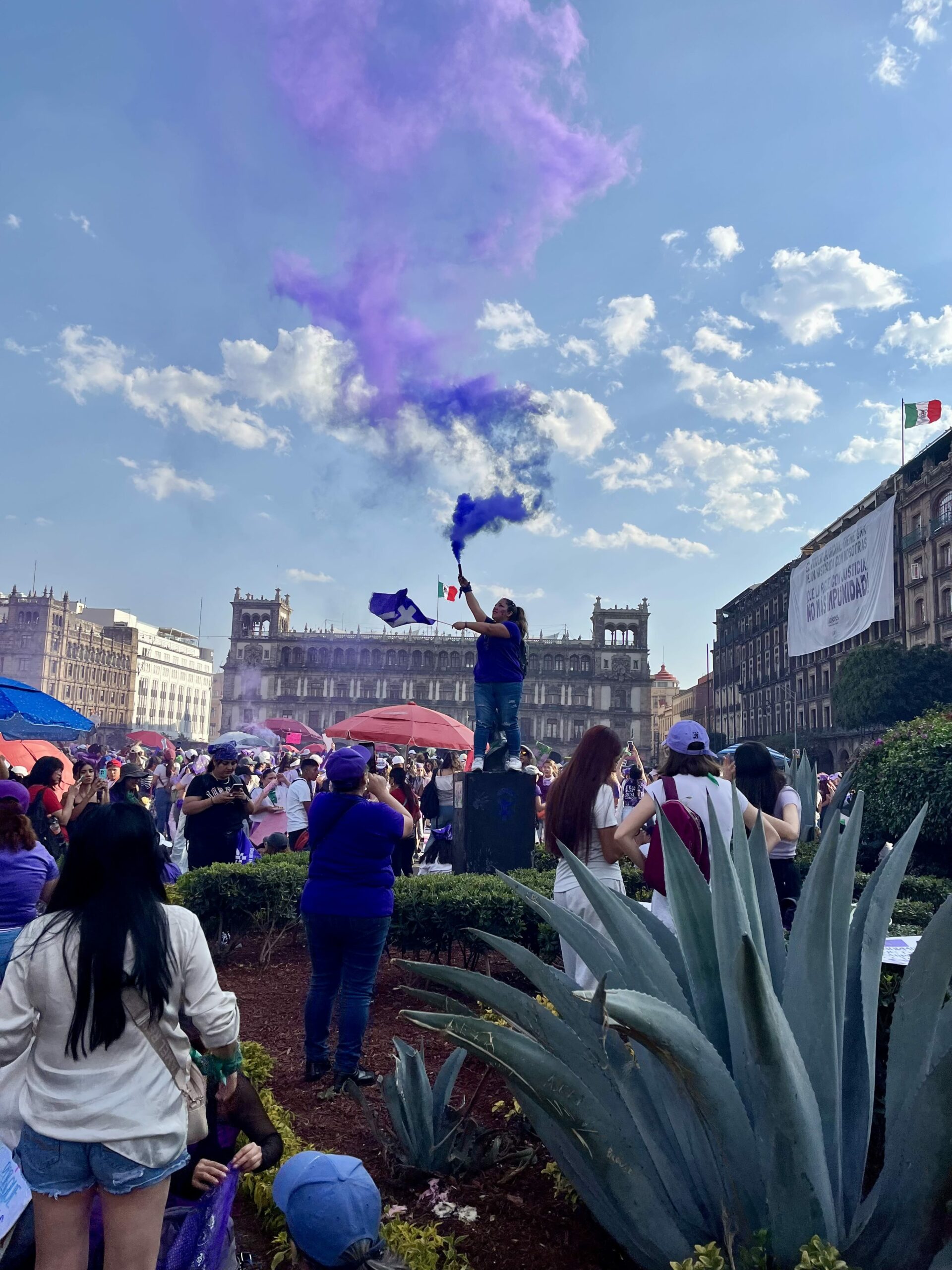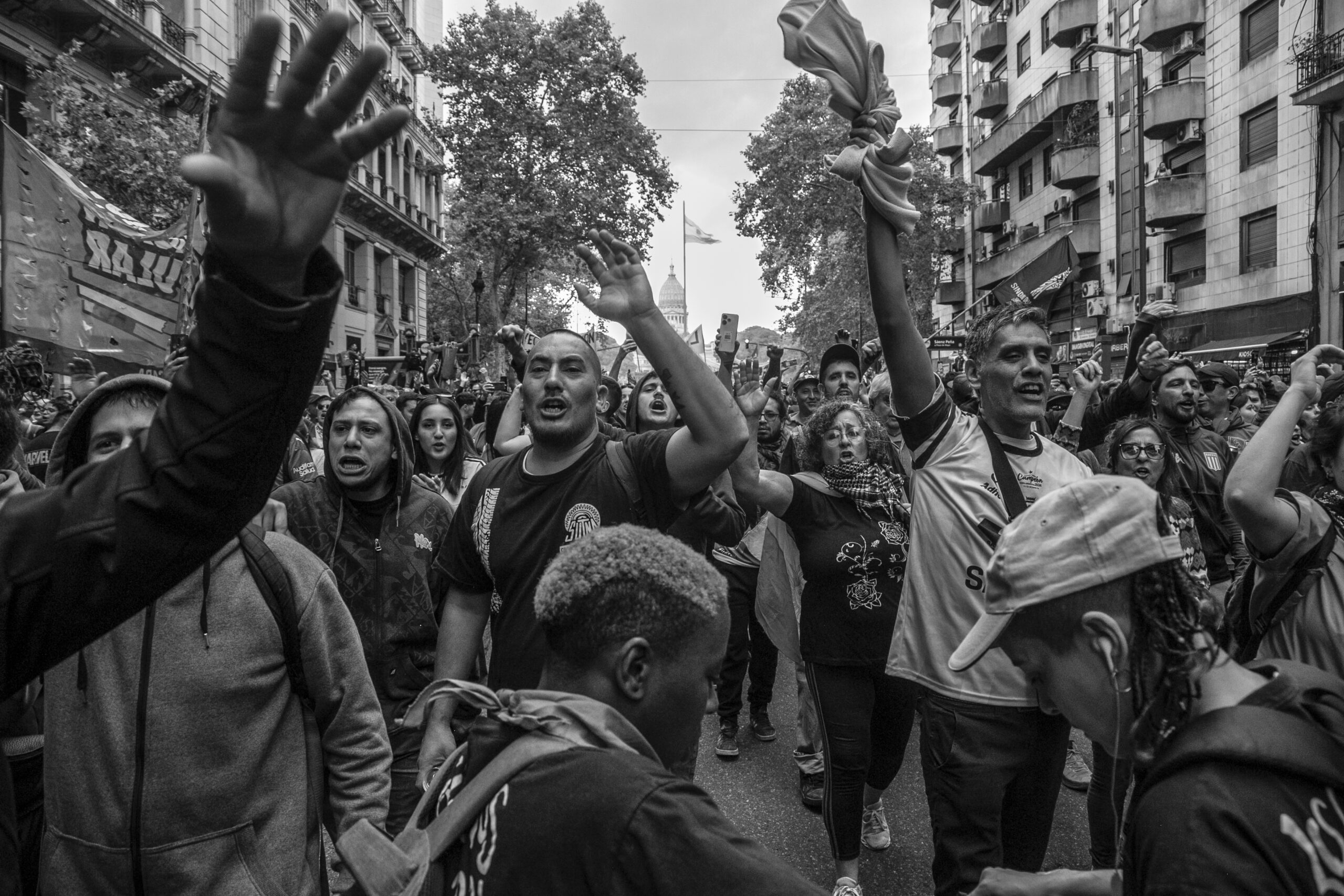 Pedophilia and the Repression of the Press in Mexico
Pedophilia and the Repression of the Press in Mexico
Last year, a journalist in Cancun–a Mayan word for “nest of serpents”–uncovered and wrote about an international ring of pedophilia. The leader, Jean Succar, was subsequently arrested and is in jail in the state of Arizona, awaiting extradition.
In her book, The Demons of Eden, the courageous journalist, Lydia Cacho, mentions a close friend of Succar’s–Kamel Nacif–the owner of a string of textile plants in the central Mexican state of Puebla.
Nacif is a wealthy and powerful man; his connections with political figures from Mexico’s former ruling party, the Institutional Revolutionary Party, go way back and have served him well. Known as the “King of Denim,” his mistreatment of textile factory workers and abuse of power in the region have been denounced repeatedly but without affecting either his influence or his fortune.
A series of taped phone conversations delivered to the Mexican daily La Jornada reveal that Nacif, who is actively supporting Succar’s defense, plotted to get revenge on the journalist who cracked the child sex and pornography ring.
By pulling strings with friends that included the governor and attorney general of the state of Puebla, the judge, and the owner of business concessions within the state prison, Nacif had Cacho arrested in Cancun for defamation of character and sent to prison in Puebla. According to Cacho and other testimonies, her arrest and transport violated basic human rights. The tapes indicate that to further punish the audacity of the journalist, arrangements had been made to have her raped in jail-a fate she narrowly escaped.
Mexican newspapers and citizen forums have expressed outrage at the apparent cynicism over the complicity between the government and the businessmen to make Cacho a cautionary tale for others whose work touches the central nodes of power, money, and influence.
Cacho’s book carefully documents the ring led by Succar on the basis of research and the testimonies of five children. Although careful not to make specific accusations beyond the public case against Succar, in the investigations the names of several major figures of Mexico’s governing and business elite surface. The U.S. government has been involved in the investigations that, in addition to connections in the United States, have opened leads in Brazil, Spain, and Hong Kong.
What emerges, and is undoubtedly just a tiny portion of the horrifying reality, are global circuits that prey upon society’s most defenseless members-the children. Globalization and new communications technology have served to expand the arena and reach of international crime. Mexico has no corner on these new forms of violence and corruption that thrive on leaping borders.
Nor is it a coincidence that the victims are women and children. The global system has learned to adapt patriarchy in new and perverse ways. The classic authoritarian family where the father rules with impunity, controlling the lives and labor of his wife and children, has extended into the public and global sphere. Sadly, modern society instead of evolving beyond these fundamental inequities has merely developed new forms.
Mexico’s new globalized industries-hailed as our hope for the future-use intensive female and child labor. The production of fruits and vegetables for export has come under scrutiny for multiple human rights and labor violations. In many of these fields of the future, most of the labor force is made up of women and children. Why? Because they’re cheaper and they can’t fight back effectively.
The textile and clothing plants that generated Succar and Nacif’s wealth by employing mostly women with little or no protection for labor rights, the rape and sexual abuse of poor children that form part of Cancun’s tourist attractions, the vast internet market for child pornography: all provide examples of how the worst aspects of patriarchy have been fortified by the global economic system. Women and children are still, as in the feudal family, on the bottom rung of power.
Because power, not sex, is what the breaking scandal in Mexico is really all about.
As revealed in the groundbreaking feminist work on rape, the driving force behind these crimes and their protective webs is the exercise of power. As the governor of Puebla struggles to save his name-and his job, since he faces Supreme Court and Congressional investigations-and businessmen seek to defend themselves, the close alliance between wealth, power, and victimization of the weak has been exposed. Globalization’s tendency in this country and elsewhere to polarize wealth and power can only strengthen that alliance.
That the victims were children has finally mobilized the citizenry and there is a chance for justice in this case. Lydia Cacho is alive and out of jail, which is a major achievement.
But for every case that makes the headlines, thousands more remain in the dark.
LAURA CARLSEN directs the Americas Program of the International Relations Center. She can be reached at: laura@irc-online.org
Translated for the IRC Americas Program by Eugenio Fernández Vázquez.
For More Information
Comisión de Derechos Humanos y Laborales del Valle de Tehuacán
Boulevard Héroe de Nacozary 210
Colonia Zaragoza, Tehuacán
CP 75770 Puebla, México
Maquila Solidarity Network
http://www.maquilasolidarity.org/
Centro de Derechos Humanos ¨Fray Francisco de Vitoria OP¨ A. C.
http://www.derechoshumanos.org.mx
Centro de Derechos Humanos ¨Miguel Agustin Pro Juarez¨ A.C
http://www.centroprodh.org.mx



